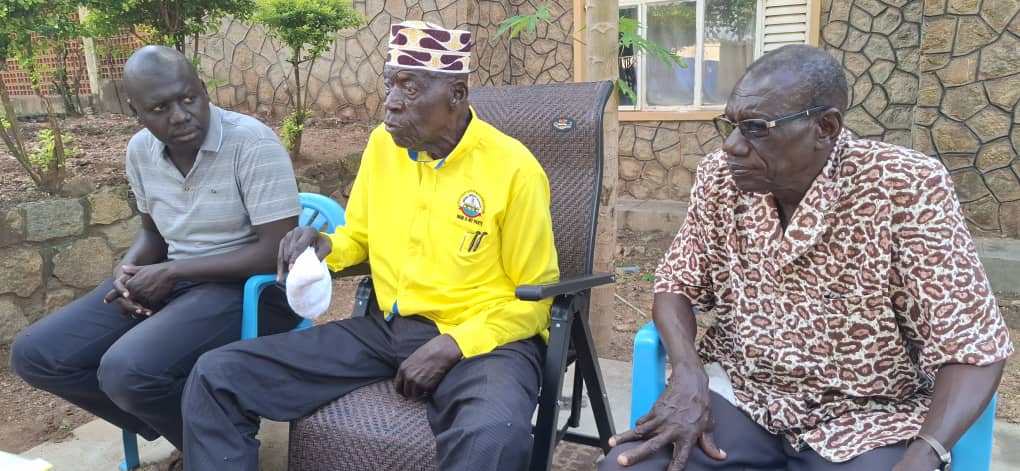Gen Moses Ali Renews Call for West Nile Ministry, War Debt Compensation

Uganda’s Second Deputy Prime Minister and long-serving legislator for Adjumani West County, Gen Moses Ali, has once again urged President Museveni to establish a dedicated Ministry for the West Nile Region and ensure compensation for war debt claimants who suffered during past insurgencies.
Speaking during during a press conference held in his home at Abrichaku Village in Adjumani Town Council, the 86-year-old retired general said West Nile continues to be marginalised under the Ministry for Northern Uganda, which he argues is too broad to effectively serve the specific needs of the region.
“The current arrangement is too large for West Nile to feel the impact,” said Gen Moses Ali. “We humbly request Your Excellency to appoint a Minister for West Nile to bring services nearer to the people and ensure focused supervision and oversight.”
Gen Ali emphasised that other regions such as Teso, Karamoja, Luweero-Rwenzori, and Busoga already benefit from designated ministries or special development programs. He insisted that West Nile deserves the same recognition and institutional attention.
The general also made a strong appeal for the compensation of war veterans and the families of those who lost lives and property during violent conflict, particularly members of the former Uganda National Rescue Front (UNRF).
“Government has compensated war claimants in Acholi, Lango, and Teso. Why is West Nile still waiting?” he asked. “We lost both lives and property. Over 513 confirmed fighters died, and more than 60% of the surviving veterans are now dead too. Their families need justice.”
He added that although some partial payments were made following a directive by President Museveni, most veterans and their dependents have not received any support.
“Uganda owes a debt to the gallant sons and daughters of West Nile. Their sacrifices should not be forgotten,” he declared.
Despite his frustrations, Gen Ali praised the NRM government for major national achievements since 1986, including: Uganda’s Gross Domestic Product (GDP) has grown significantly — from USD 3.9 billion (approximately Shs14.8 trillion) in 1986 to USD 49.4 billion (about Shs 187.7 trillion) in 2023, according to figures from the Uganda Bureau of Statistics, electricity generation rise from 150 MW to 2,000 MW, tarmacked roads increased from 1,000 km to 7,000 km, life expectancy increased from 43 to 63 years and the literacy rate improved to 75%
In West Nile specifically, he cited key infrastructural developments such as the Kole–Gulu–Nebbi–Arua power line and the Atiak–Laropi road as milestones of progress — but maintained that more must be done.
“These are commendable achievements, but West Nile still requires tailored attention to fully thrive,” he concluded.
His remarks come as Uganda approaches the 2026 general elections, with growing calls from historically underserved regions for equity, recognition, and regional development strategies that reflect the sacrifices and contributions of their people.



0 Comments